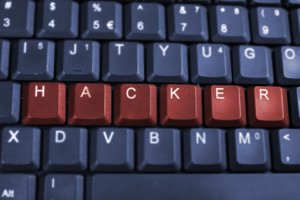What is Shoulder Surfing?
The next time you’re in a public place and glued to your smartphone or tablet — whether it’s at the gym, a coffee house, the airport, or just a park bench— know that someone might be peering over your shoulder to see what you’re doing. The snooper could just be curious, or they could be trying to capture your login information so they can use it to access your accounts impersonating you later on.
 This behavior is called “shoulder surfing”, but it doesn’t always mean that someone is literally looking over your shoulder. It can also be done from far away, using binoculars or even a small telescope.
This behavior is called “shoulder surfing”, but it doesn’t always mean that someone is literally looking over your shoulder. It can also be done from far away, using binoculars or even a small telescope.
That’s why you should always work with your back tightly against a wall. If that’s not possible, be aware of who’s around you, or behind you, and try to shield your screen. Of course, shoulder surfing can also occur at the workplace where giant computer screens are facing outward for anyone walking by to see.
And it isn’t just the screen contents that the thief wants. A skilled thief can watch the user’s finger movements to pick up on passwords and login information.
Shoulder surfing can be completely concealed in settings where people are normally packed together, such as on public transportation, airplanes, concert halls, or even a busy emergency room.
Think of how easy it would be for you to watch what the person next to you is typing, especially if they’re wearing a headset and oblivious to their surroundings.
The fact that this is an easy way to steal information is what makes it so common. A study of commuters in the UK found that 72 percent shoulder surfed—mostly out of boredom rather than for fraudulent intent, but that just goes to show how easy it really is.
Here’s some simple ways to protect yourself from should surfing when entering or accessing personal data on your devices:
- Look for an area where your back is against a wall.
- Be aware of your surroundings at all times, not just people but also video cameras.
- Consider using a screen protector to obscure the visibility of the display.
- Save your personal, business and financial matters for when you are in the privacy of your own home.
So whether you’re just surfing social media sites at a coffeehouse, or an executive trying to catch up on work on a plane, make sure that you keep an eye out for anyone whose eyes are glued to your screen.
Robert Siciliano is an Online Safety Expert to Intel Security. He is the author of 99 Things You Wish You Knew Before Your Mobile was Hacked! Disclosures.


























